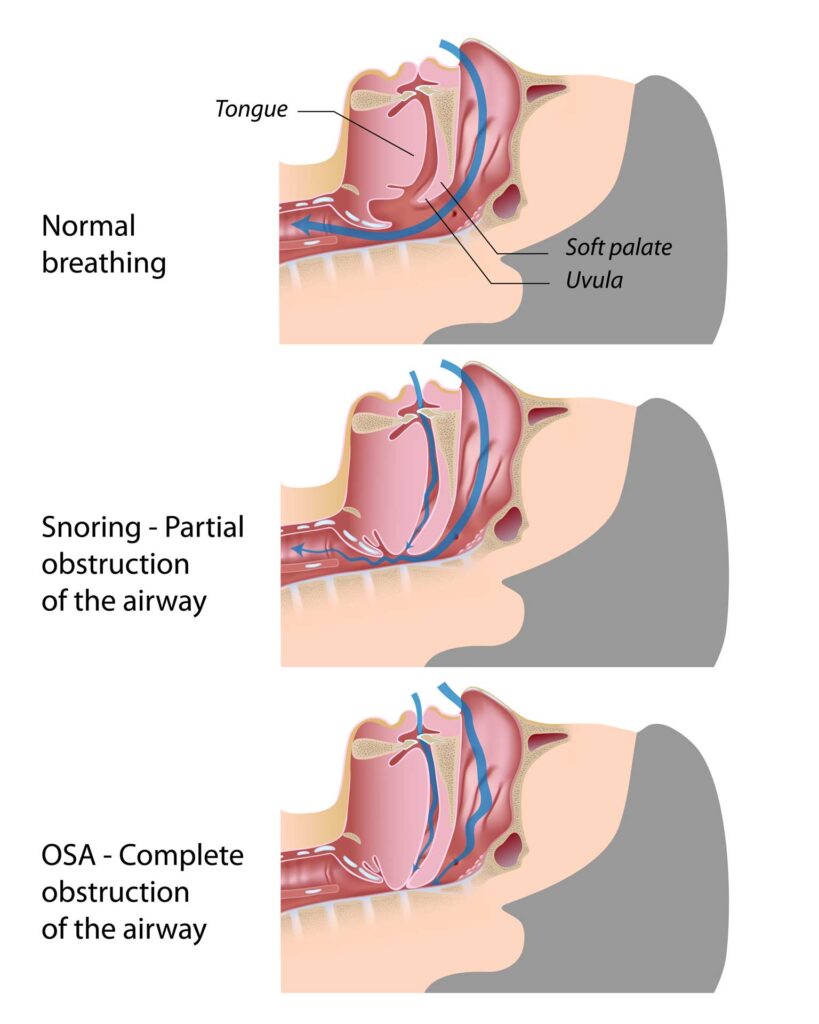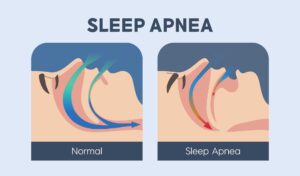Do you find yourself or your loved ones frequently disturbed by the sound of loud snoring during the night? Snoring is a common issue that affects many people, and while it may seem harmless, it can be indicative of underlying health concerns. In this article, we will explore the various causes of snoring and discuss potential solutions to help you and your partner enjoy a peaceful night’s sleep.
The Sound of Snores:
Snoring occurs when the flow of air through the mouth and nose is partially blocked during sleep. This blockage causes the surrounding tissues to vibrate, producing the distinctive snoring sound. It’s essential to recognize that snoring can vary in intensity, from light and occasional to loud and persistent.

Common Causes of Snoring:
- Sleep Position: One of the most common causes of snoring is sleeping on your back. This position can cause the tongue and soft palate to collapse to the back of the throat, narrowing the airway.
- Nasal Congestion: Allergies, colds, or sinus infections can lead to nasal congestion, making it harder to breathe through the nose. This can force individuals to breathe through their mouth, increasing the likelihood of snoring.
- Obesity: Carrying excess weight, particularly around the neck, can put pressure on the airway and contribute to snoring.
- Alcohol and Sedatives: The relaxation of throat muscles due to the consumption of alcohol or sedatives can increase the chances of snoring.
- Sleep Apnea: Snoring can also be a symptom of obstructive sleep apnea (OSA), a serious sleep disorder where breathing repeatedly stops and starts during the night.
- Age: As we age, throat muscles tend to lose tone and elasticity, increasing the likelihood of snoring.
Solutions to Stop the Snores:
- Change Sleep Position: If you snore primarily when sleeping on your back, try sleeping on your side to reduce snoring.
- Nasal Strips and Decongestants: Over-the-counter remedies like nasal strips or decongestants can help alleviate snoring caused by nasal congestion.
- Weight Management: Losing excess weight can reduce the pressure on your airway, potentially reducing snoring.
- Limit Alcohol and Sedatives: Reducing or eliminating alcohol and sedatives, minimally four to five hours before bedtime, can help prevent muscle relaxation in the throat.
- Consult a Specialist: If snoring persists or is accompanied by other symptoms like daytime fatigue or gasping for air during sleep, consult a sleep specialist. They can assess if it might be related to sleep apnea or another sleep disorder.
- NightLase Treatment: For those who snore but do not have sleep apnea, non-invasive treatments like NightLase can be a highly effective option. This laser therapy tightens and tones the tissues in the throat, reducing snoring vibrations.
Conclusion:
While snoring can be disruptive to your sleep and that of your partner, it’s essential to recognize that there are solutions available to address its underlying causes. By understanding why you snore and taking appropriate steps, you can improve the quality of your sleep and enjoy nights of restful slumber. If snoring persists despite your efforts, seeking professional guidance can help identify and treat any underlying sleep issues.
Consult a specialist and nightlase to treatment of sleep apnea in our clinic





